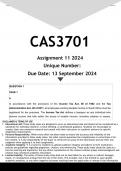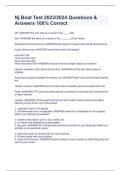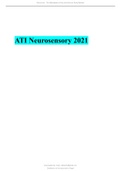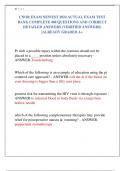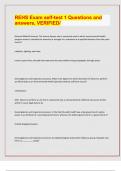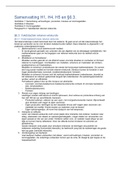Exam (elaborations)
CAS3701 Assignment 11 (ANSWERS) 2024 - DISTINCTION GUARANTEED
- Institution
- University Of South Africa (Unisa)
Well-structured CAS3701 Assignment 11 (ANSWERS) 2024 - DISTINCTION GUARANTEED. (DETAILED ANSWERS - DISTINCTION GUARANTEED!)..QUESTION 1 1. BACKGROUND LearnCo. Limited (LearnCo.) is a top training provider that offers skills development training solutions to businesses and government institutions ...
[Show more]
